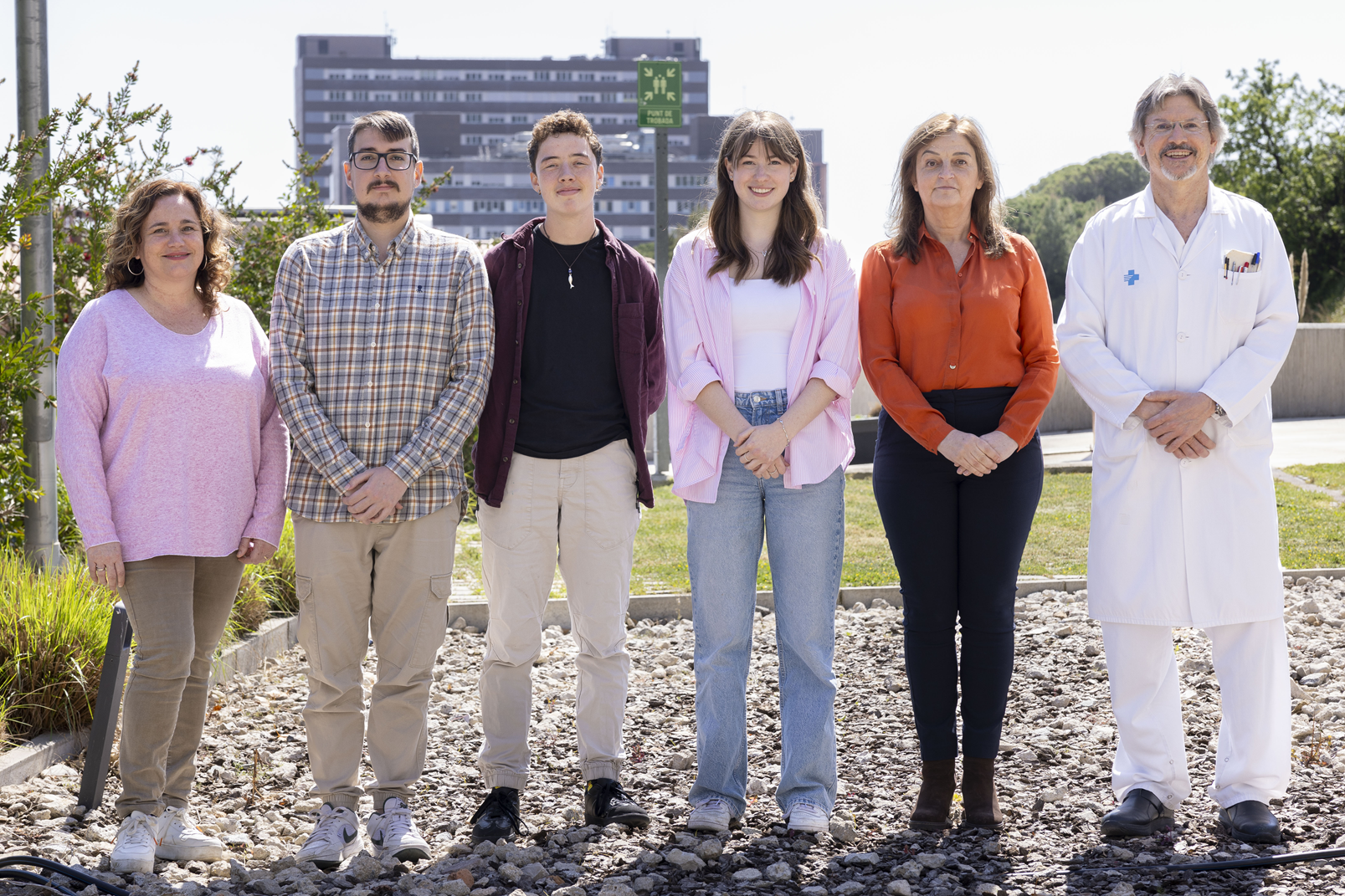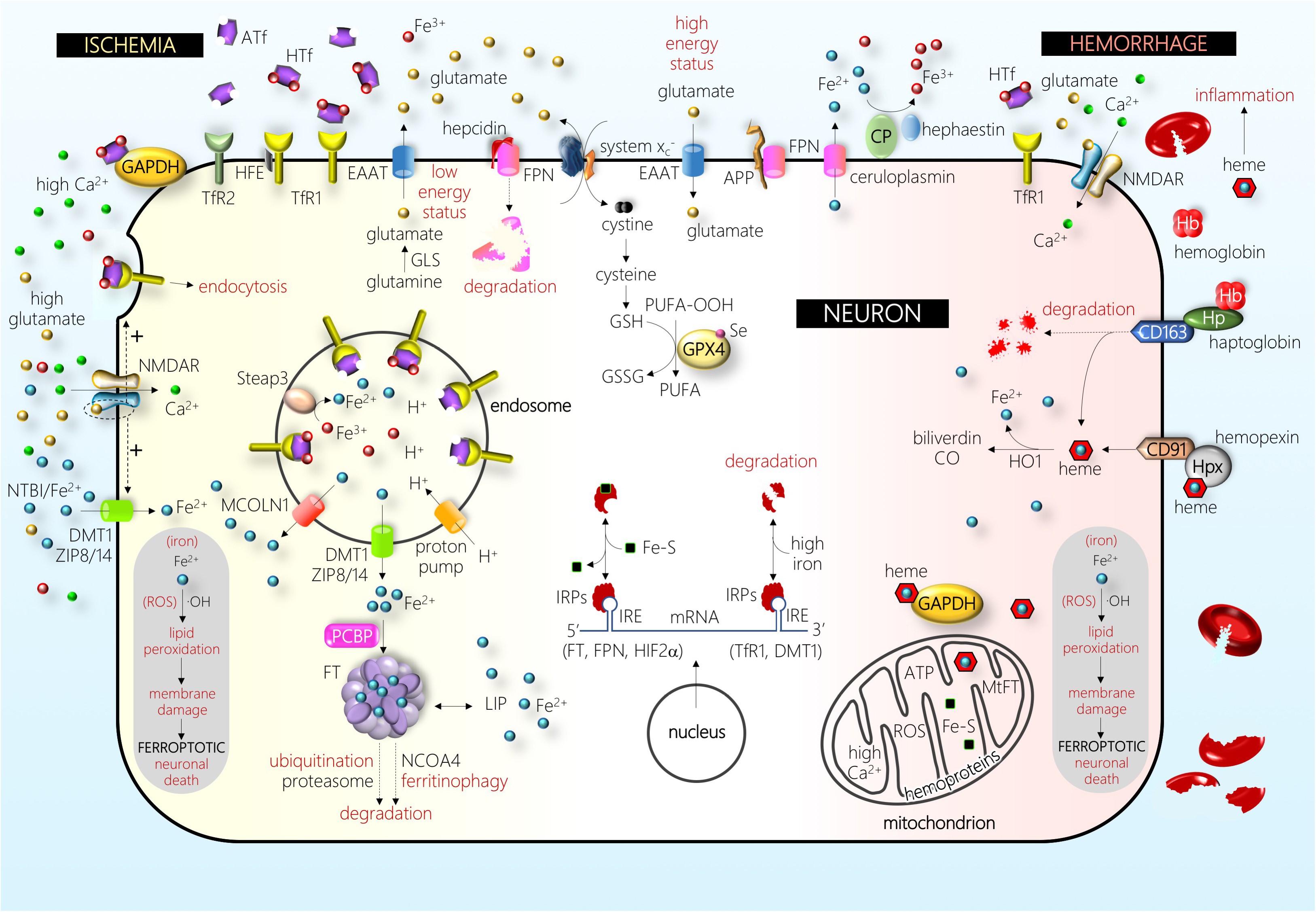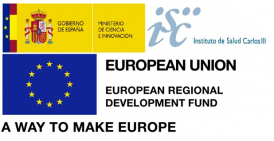About
Fifteen million people around the world suffer a stroke every year and less that 15% will ever be able to return back to normal life. The group's goal is to generate scientific knowledge of the pathophysiology of neurovascular disorders and stroke; cerebral iron dysregulation in the ischemic or hemorrhagic stroke; and multimodal imaging of the pathophysiological hallmarks of the ischemic or haemorrhagic stroke. This knowledge will enable the development of healthcare innovations in the fields of therapy, stratification/classification/predictive biomarkers, and machine/deep learning neurobehavioral assessment. These innovations are tested in proof of concept in vitro/in silico or in in vivo preclinical models of stroke.
The Cellular and Molecular Neurobiology (CMN) Research Group promotes an ecosystem of interdisciplinary collaborations to generate new ideas addressed to protecting the brain against stroke. These products of a CMN-developed first-in-class new generation of therapeutic approaches for stroke patients are under development to reduce mortality and provide a better quality of life for survivors.
Keywords: Stroke, ischemic stroke, haemorrhagic stroke, mechanisms of neurodegeneration, treatments, ferroptosis, transferrin, machine/deep learning assessment of behaviour, animal models of stroke.

Group leader
- Teresa Gasull Dalmau, PhD

Teresa Gasull Dalmau, PhD
Dr Teresa Gasull holds a Master’s degree in Neuroscience and a PhD in Biology. She was appointed a Ramón y Cajal position at CSIC, and since 2006 she leads the Cellular and Molecular Neurobiology (CMN) Research Group at Germans Trias i Pujol Research Institute (IGTP). Her research on stroke has a strong translational focus to generate scientific knowledge of neurovascular disorders, cerebral iron dysregulation in stroke, and multimodal imaging of the pathophysiological hallmarks of ischemic or hemorrhagic stroke. The research done at the CMN Research Group using proof-of-concept in vivo preclinical models of stroke in rodents and in big mammals (pigs) has been applied to the development of healthcare innovations in the fields of therapy, biomarkers of stratification, classification and prediction, and machine/deep learning neurobehavioral assessment.
Dr Gasull is a member of the Spanish Thematic Network of Stroke Research RICORS STROKE, which has more than 100 associated scientists, and of the AGAUR Group of Research in Neurosciences at IGTP. She has been awarded in the innovation programs Bioemprendedor XXI and CaixaImpulse and has received funding as PI for 13 competitive research projects and agreements with companies in the pharmaceutical/biotechnology field. Dr Gasull has published 50 articles and is author of two patents in the field of stroke. She is topic editor for Cells, guest editor for IJMS/ Curr. Issues Mol. Biol., and member of the external commitee of the IGTP/HUGTP Biobank.
Contact: tgasull(ELIMINAR)@igtp.cat
ORCID: 0000-0002-9321-1741 - Octavi Martí Sistac, PhD

Team
Senior researcher
Núria DeGregorio-Rocasolano, PhD(ELIMINAR)
Interventional neuroradiologist and neurosurgeon
Carlos Castaño Duque, MD, PhD(ELIMINAR)
PhD students
Alexia García Serran(ELIMINAR)
Diego Sahuquillo Barros(ELIMINAR)
Research lines
Novel glutamate-related targets for neuroprotection
The study of the mechanisms driving excitotoxic neuronal death through NMDA-glutamate receptor signaling to find and test targets for neuroprotection.
Ferroptosis in neuronal death and antiferroptotic neuroprotective compounds
To understand ferroptosis in neuronal death in stroke and other brain diseases: finding new targets of intervention and new treatments.
Experimental modelling of stroke in rodents and swine
Models of ischemic and haemorrhagic stroke damage in rats, mice and in gyrencephalic, human-like, swine's brain, with a special focus on damage of the white matter and brain areas connectivity.
Discovery of new biomarkers to improve stroke treatment
Discovery of new biochemical and bioimaging biomarkers useful to address point of care stroke type identification, stroke patient stratification, patient selection for treatment allocation and/or outcome prediction.
Computational biology: machine/deep learning assessment of behaviour in in vivo stroke models
Animals subjected to experimental stroke are evaluated for stroke severity using neurobehavioral performance, recorded via video both before and after stroke induction. DeepLabCut, MATLAB, and LASSO regression are employed to develop algorithms that accurately predict stroke occurrence and severity. This machine learning-based approach enables efficient, consistent, and objective assessment of stroke outcomes in preclinical studies.

Active projects
Innovative BIomarkers to DIagnose Ischemic stroke: the bet on miRNAs in extracellular vesicles in humanized swine models (IBIDI-Stroke)
PI: Teresa Gasull Dalmau
Funding agency: Instituto de Salud Carlos III (ISCIII)
Agency code: PI21/0192
Duration: 01/01/2022 - 01/01/2026
More information

Enhancing post-stroke recovery with nutraceutic hydroxytyrosol in "humanized" stroke models in swine: a multiomics, neuroimaging and functional study
PI: Teresa Gasull
Funding agency: PROYECTOS DE I+D+I EN SALUD ISCIII
Agency code: PI24/00963
Duration: 01/01/2025 - 31/12/2027
RICORS
PI: Mònica Millán
Funding agency: ISCIII
Agency code: RD24/0009/0015
Duration: 01/01/2025 - 31/12/2027
GRUP DE RECERCA NEUROVASCULAR GERMANS TRIAS I PUJOL (GRNVGT)
Several CMN Research Group members are part of the GRNVGT Group
Funding agency: Agència de Gestió d'Ajuts Universitaris i de Recerca (AGAUR), Generalitat de Catalunya
Agency code: 021 SGR 00925
Duration: 01/01/2022 - 30/06/2025
PhysioLab 3.0: innovative protocols and technological integration in Physiology practicals in a Faculty of Biosciences
PI: Octavi Martí-Sistac
Funding agency: Universitat Autònoma de Barcelona
Duration: 09/2023 - 07/2025
Últim pas cap a la clínica: estudi preclínic aleatoritzat d'apotransferrina intravenosa en el tractament de l'ictus isquèmic agut
PI: Teresa Gasull
Funding agency: Departament de Sanitat i Seguretat Social Generalitatde Catalunya
Agency code: SLT036/24/000048
Duration: 01/01/2025 - 31/12/2026
Past projects
Apotransferrin to treat acute stroke as a novel neuroprotector strategy /Apotransferrina com a nou tractament per a l'Ictus agut
PI: Teresa Gasull Dalmau
Funding agency: Agència de Gestió d'Ajuts Universitaris i de Recerca (AGAUR), Generalitat de Catalunya
Agency code: 2019PROD00120
Duration: 22/07/2020 - 22/01/2022
More information
Development of an humanized model of ischemic stroke through endovascular access in the pig for the dynamic study of infarct and cerebral reperfusion
PI: Teresa Gasull Dalmau
Funding agency: Instituto de Salud Carlos III (ISCIII)
Agency code: PI18/01813
Duration: 01/01/2019 – 31/06/2023
Kintsugi Therapeutics/IGTP co-development project. Efecto de los inhibidores de caspasa-2 desarrollados por Kintsugi en neuroprotección en isquemia
PI and scientific coordinators
Funding agency: Kintsugi Therapeutics
Duration: 19/07/2021 - 19/07/2022
Preclinical Proof of Concept of a new compound in a non-BPL study in an orthotopic glioblastoma model in mice
PI and sicntific advisor: Teresa Gasull Dalmau
Funding agency: Laminar Pharma
Duration: 01/04/2024 - 31/12/2024
Scientific publications
Highlighted publications
Castaño C, Melià-Sorolla M, García-Serran A, DeGregorio-Rocasolano N, García-Sort MR, Hernandez-Pérez M, Valls-Carbó A, Pino O, Grífols J, Iruela-Sánchez A, Palomar-García A, Puig J, Martí-Sistac O, Dávalos A, Gasull T. Establishment of a reproducible and minimally invasive ischemic stroke model in swine. JCI Insight. 2023 Apr 24;8(8):e163398. DOI: 10.1172/jci.insight.163398
Millán M, DeGregorio-Rocasolano N, Pérez de la Ossa N, Reverté S, Costa J, Giner P, Silva Y, Sobrino T, Rodríguez-Yáñez M, Nombela F, Campos F, Serena J, Vivancos J, Martí-Sistac O, Cortés J, Dávalos A, Gasull T. Targeting Pro-Oxidant Iron with Deferoxamine as a Treatment for Ischemic Stroke: Safety and Optimal Dose Selection in a Randomized Clinical Trial. Antioxidants (Basel). 2021 Aug 10;10(8):1270. DOI: 10.3390/antiox10081270
DeGregorio-Rocasolano N, Guirao V, Ponce J, Melià-Sorolla M, Aliena-Valero A, García-Serran A, Salom JB, Dávalos A, Martí-Sistac O, Gasull T. Comparative Proteomics Unveils LRRFIP1 as a New Player in the DAPK1 Interactome of Neurons Exposed to Oxygen and Glucose Deprivation. Antioxidants (Basel). 2020 Nov 30;9(12):1202. DOI: 10.3390/antiox9121202
DeGregorio-Rocasolano N, Martí-Sistac O, Ponce J, Castelló-Ruiz M, Millán M, Guirao V, García-Yébenes I, Salom JB, Ramos-Cabrer P, Alborch E, Lizasoain I, Castillo J, Dávalos A, Gasull T. Iron-loaded transferrin (Tf) is detrimental whereas iron-free Tf confers protection against brain ischemia by modifying blood Tf saturation and subsequent neuronal damage. Redox Biol. 2018 May;15:143-158. DOI: 10.1016/j.redox.2017.11.026
Bustamante A, López-Cancio E, Pich S, Penalba A, Giralt D, García-Berrocoso T, Ferrer-Costa C, Gasull T, Hernández-Pérez M, Millan M, Rubiera M, Cardona P, Cano L, Quesada H, Terceño M, Silva Y, Castellanos M, Garces M, Reverté S, Ustrell X, Marés R, Baiges JJ, Serena J, Rubio F, Salas E, Dávalos A, Montaner J. Blood Biomarkers for the Early Diagnosis of Stroke: The Stroke-Chip Study. Stroke. 2017 Sep;48(9):2419-2425. DOI: 10.1161/strokeaha.117.017076
Additional information
Collaborative networks
RICORS-ICTUS Redes de Investigación Cooperativa ENFERMEDADES VASCULARES
Objective of the group: validation of new treatments for stroke.
Several CMN Research Group members are part of the RICORS-ICTUS Network.
Funding agency: Instituto de Salud Carlos III (ISCIII)
Agency code: RD21/0006/0024
Duration: 01/01/2022 - 31/12/2024
Doctoral theses
Title: New humanized model of ischemic stroke through endovascular approach in the pig: study of the pathophysiological pathways in gyrencephalic brain and of new biochemical and multimodal imaging biomarkers with potential transferability
Author: Marc Melià Sorolla
Supervisors: Dr Teresa Gasull Dalmau, Dr Octavi Martí-Sistac
University: Universitat Autònoma de Barcelona
Date of defence: Septembrer 2024
Title: Role of iron and ferroptosis in a haemorrhagic stroke model: identification of specific biomarkers, therapeutic targets and potential neuroprotective candidates
Author: Alexia García Serran
Supervisors: Dr Teresa Gasull Dalmau, Dr Octavi Martí-Sistac
University: Universitat Autònoma de Barcelona
Date of defence: October 2025
News
Students from Badalona discover research at the Can Ruti Campus during Science Week
Nearly two hundred baccalaureate and vocational training students have taken part in a new edition of the activity "Open House: get to know the Can Ruti Campus up close", once again consolidating the campus's commitment to scientific outreach and to fostering vocations among young people.
IIS IGTP secures over €6.5 million through the Acción Estratégica en Salud 2024
The Instituto de Investigación Sanitaria IGTP has secured a total of €6,518,867 for various research projects and researcher contracts within the Acción Estratégica en Salud 2024 calls.
Contact
(+34) 93 033 05 31
More links
Follow @TGasull on X · Follow @OSistac on X · Follow @NeuroGermansTrias on X
